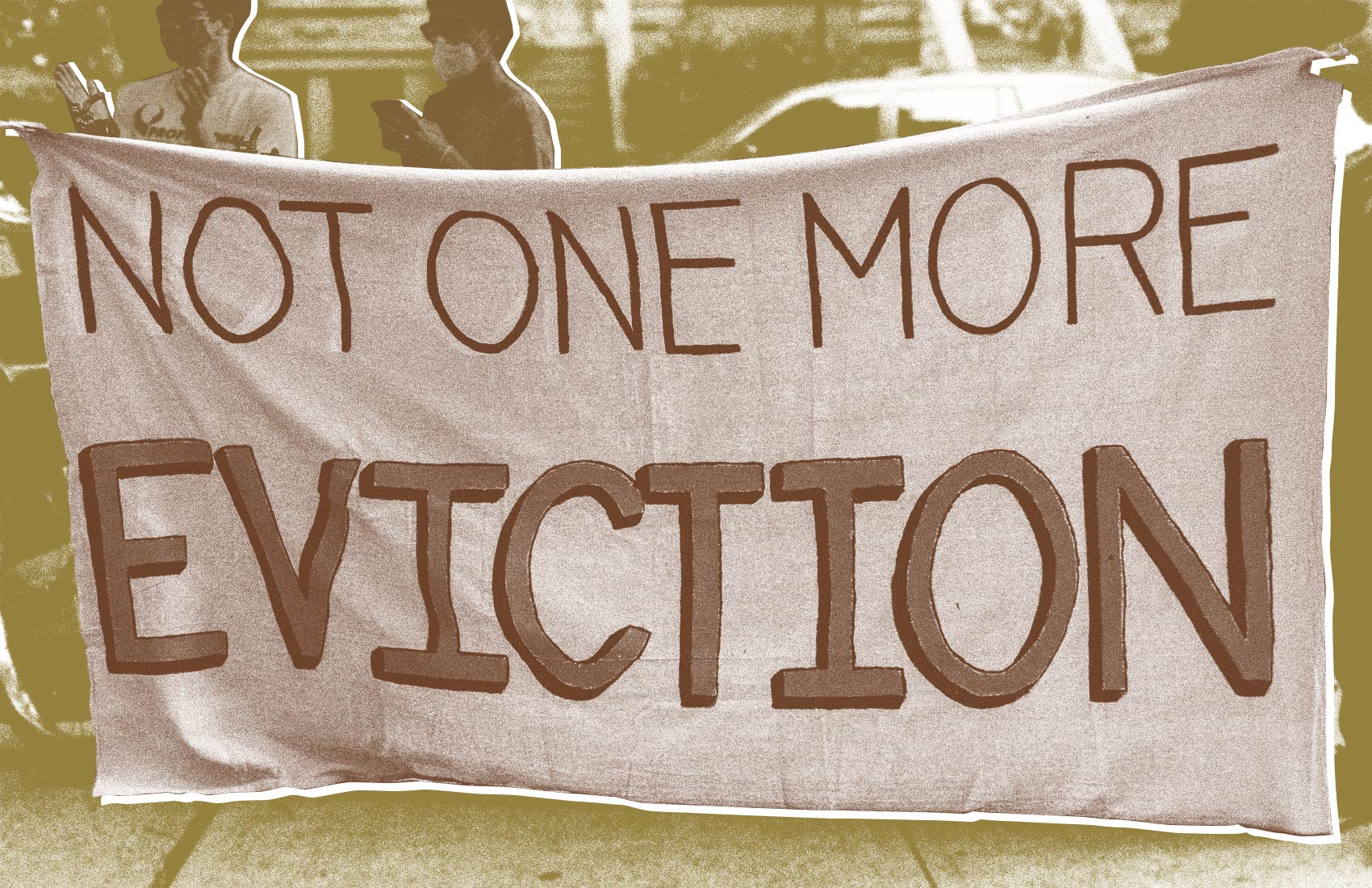A Judge Suspended Evictions in Kansas City. Advocates Say That’s Not Enough
The order halts evictions in the city and surrounding area until Jan. 24, but a housing rights group says greater protections are needed for the most vulnerable during the COVID-19 pandemic.

Housing rights advocates are championing a recent order in Missouri, halting evictions for the next two weeks.
Judge J. Dale Youngs, of the 16th Circuit Court of Missouri, issued an administrative order Monday suspending all eviction hearings, summons, and writs of restitution through Jan. 24, or until Youngs or another judge lifts the order, in Jackson County, Missouri, which includes most of Kansas City, the state’s largest city.
KC Tenants, a housing rights group that represents tenants in the city, touted the order as a victory but said it still leaves far too many people vulnerable to being removed from their homes during the COVID-19 pandemic.
“This is the strongest moratorium that we’ve won through our organizing to date,” Tara Raghuveer, director of KC Tenants, told The Appeal. “But it’s only for two weeks. It has the potential to be extended, but for us that’s not even close to being good enough. It’s not good enough for all of the people who are scheduled for evictions after that two-week period is up and it’s not good enough for all of the people who have been evicted between June and yesterday.”
The order comes in response to a shooting on Friday. While attempting to serve a man an eviction notice in Blue Springs, Missouri, a court deputy shot the man in the stomach. He and another deputy were in the man’s home when the shooting took place, according to local police. According to a court statement, the man pulled out a gun and pointed it at the officers.
Youngs wrote in his order that “recent social and political unrest has combined with the societal stress associated with the spread of COVID-19” to create a significant safety risk to court staff tasked with carrying out evictions.
The order extends beyond the temporary eviction moratorium issued by the Centers for Disease Control and Prevention, which will expire at the end of the month. Raghuveer said the CDC moratorium provides inadequate protections because it still allows for evictions for reasons other than failure to pay rent and it puts the burden on the tenant to declare their need for protection from eviction.
“What yesterday’s order proves is that the judge could have, and could still, issue an actual eviction moratorium,” Raghuveer said. “He could have done it all along.”
Raghuveer said advocates will continue to push for a true eviction moratorium to last until the COVID-19 and economic crisis brought on by the pandemic are over, but that they were also pushing for state and federal responses to cancel rent and debt, as well as expunge tenants’ eviction records.
“If the pandemic and the corresponding economic crisis have shown us anything, it is the utter failure of the system that treats housing as a commodity rather than guarantees housing as a public good and a human right,” Raghuveer said. “This is our opportunity to forge ahead, to overhaul this fundamentally rotten system.”
KC Tenants are campaigning to prevent evictions this month as part of their Zero Eviction January campaign. On Jan. 7, the group rallied outside of the county courthouse and successfully disrupted eviction hearings scheduled that day, which provided the tenants a temporary reprieve. According to the group’s leadership, KC Tenants stopped more than 300 evictions that day by blocking access to the courthouse.
Grassroots advocacy groups across the country are organizing to prevent evictions. This includes traditional calls for legislation or executive action but also across the country, groups have directly gone to courthouses and even to rental properties to disrupt eviction proceedings.
In July, advocates in New York blocked access to a rental property so the landlord could not carry out what they described as an illegal eviction.
In New Orleans, advocates blocked access to the courthouse and city hall, prompting similar actions in New York, Houston and Los Angeles.
Nationwide there are roughly 101 million people living in rental properties. A study published in August found that around a third of those people were at risk of losing their homes because of the COVID-19 pandemic.
Princeton University’s Eviction Lab found that as of Jan. 2, landlords have filed for nearly 209,000 evictions across five states and 27 cities, including 2,828 in Kansas City alone. During the final week of 2020, more than 3,000 evictions were filed in the same states and cities.
Evictions have been linked to more than 10,000 COVID-19 deaths nationwide, according to public health researchers.
In December, Kansas City Mayor Quinton Lucas asked the courts for a moratorium on evictions through the first six months of 2021. Lucas described the moratorium as one of the “most important public health and economic interventions” needed during the pandemic.
“Eviction is already a fundamentally traumatic event, both a cause and a condition of poverty,” Lucas wrote. “The pandemic only adds more anguish.”
